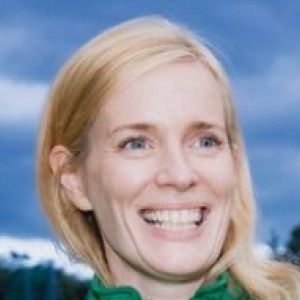Essential resource to support colleagues
Catherine Diver examines the results
of the recent SAS and LED survey


Catherine Diver: RCSEd SAS and LED Committee member
The specialty and specialists (SAS) and locally employed doctor (LED) group grew by 40% from 2017 to 2021 in comparison with 11% growth for doctors on the specialist register and 7% for GPs1. It is the largest group of doctors registered with the GMC, accounting for 31% of the number of doctors registered, as per a GMC data explorer reading from 20/02/2023.
There are insufficient data to break this down into specialty type or location. The State of medical education and practice in the UK reports from the GMC in 2021 and 2023 record 10% and 20% SAS and LED representation respectively1,2.
When preparing for this survey it was evident that it can be difficult to identify our SAS and LED colleagues on registers of professional and governing organisations, making it important to encourage all who work in this group to self-identify on professional platforms. These details will be an invaluable resource in understanding needs and targeting education. To address the limited data available, the SAS and Locums Committee at the College undertook a short survey of colleagues.
The results…
Our survey included seven questions and was sent to doctors registered with the RCSEd who identified as SAS and LED. It ran for two months and had 113 responses. We had respondents from 12 surgical specialties and identified that the most popular specialties were trauma and orthopaedics (24%) and general surgery (20%). A total of 54% of those surveyed identified as specialty doctor, 12% as associate specialist and 7% as specialist.
Interestingly, 58% of respondents indicated their career plans were to progress towards the Certificate of Eligibility for Specialist Registration (CSER), now known as the portfolio pathway, compared with 23% from a research study by the GMC when looking at the SAS/LED across a range of specialties in 20193.
Unsurprisingly, when asked about training needs, CSER application was the most popular answer (37%). Other training needs included gaining independent practice, exam preparation, formal accredited training in specialist skills, leadership skills, education role development and quality improvement.
More than half (53%) of respondents held another role within their job plan, including educational and clinical supervisor, appraiser, and specialty and governance lead, with some carrying out multiple roles. And 39% held a role outside their job plan, including professional body committee member, journal editor, local negotiating committee member and surgical planning group member. Again, some had multiple roles.
When asked what the College could do to help the SAS and LED group, the results were related to CSER guidance and application (35%), gaining independent practice and recognition (24%), and help and guidance in application for the specialist role (13%).
We hope the RCSEd SAS and LED study day on 20 October 2023 helped cover these issues.
|
References 1. The state of medical education and practice in the UK 2021 (gmc-uk.org) 2. The state of medical education and practice in the UK: Workplace experiences 2023 (gmc-uk.org) 3. 3---new-recognised-specialist-qualifications--rsq--route-for-gp-and-specialist-qualificati-101751471.pdf (gmc-uk.org) |
